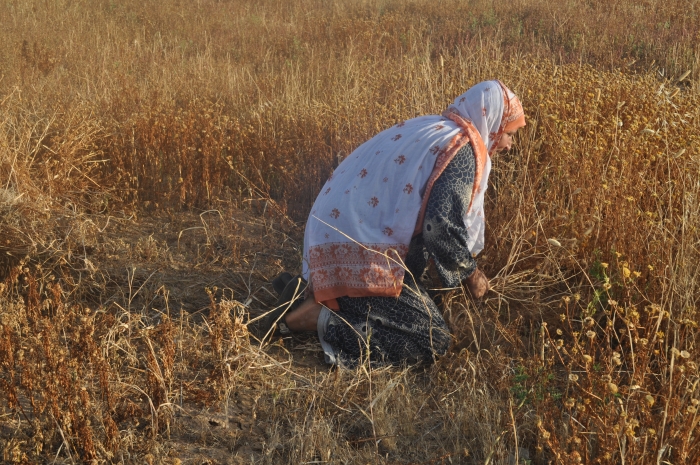-
Israeli forces violently arrest demonstrators in al-Walaja
15 May 2011 | International Solidarity Movement At 11 AM on al-Nakba remembrance day, 500 residents from the West Bank village of al-Wallajeh and international supporters marched towards the Israeli Apartheid Wall. The Wall was built to separate the villagers from their original land from which they were expelled in 1948. The demonstration was violently […]
-
Activists in Hebron accompany farmer suffering from settler attacks
15 May 2011 | International Solidarity Movement This past week in the outskirts of Hebron, ISM activists have been helping farmer Abd al Kareim Al Jabari to work his land after him and his family have suffered continuous harrasment from settlers who have prevented them from working their land. In the most recent settler attack […]
-
Do you see that land? That land is mine and I cannot go there
14 May 2011 | International Solidarity Movement, Gaza On May 8, 9, and 10th the farmers of Khuza’a harvested their wheat. Khuza’a is a village near the Israeli border in the southern Gaza Strip. For three days they visited the fields, starting very early in the morning and picking the fruits of their land. For […]
Action Alert An Nabi Saleh Apartheid Wall Arrests BDS Bethlehem Bil'in Cast Lead Demonstration Denial of Entry Ethnic Cleansing Farmers Gaza Global Actions Hebron House Demolition International law Israeli Army Jerusalem Live Ammunition Nablus Ni'lin Prisoner Ramallah Rubber-coated steel bullets Settlement Settlers Settler violence Tear-Gas Canister Video

